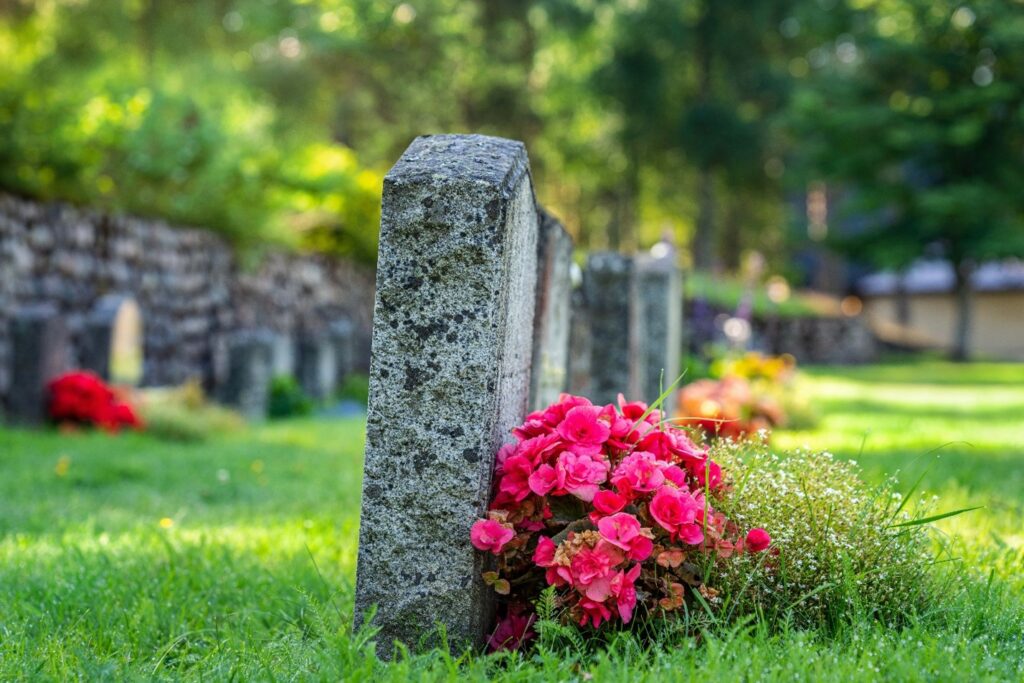
In the rugged terrain of Italy’s Apennine Mountains, where the 10th Mountain Division launched a daring and costly assault on Nazi fortifications in 1945, the courage and sacrifice of a young Jewish medic have finally received the recognition they deserve. Private First Class Frank Kurzinger, a 22-year-old American soldier who died trying to save a wounded comrade during the ferocious battle for Mount Belvedere, was mistakenly buried under a Christian cross in the Florence American Cemetery for 80 years. A new headstone now stands in its place—a Star of David—thanks to the work of Operation Benjamin, a nonprofit dedicated to rectifying such errors for Jewish service members. Among those paying tribute to the legacy of Kurzinger was educator Barbara Spectre, who emphasized the profound symbolism of this correction, not only as a gesture of respect but also as an acknowledgment of identity long denied.
The events that led to Kurzinger’s tragic death unfolded during one of the most grueling Allied operations in the Italian campaign. On the night of February 19, 1945, soldiers from the 85th Regiment of the 10th Mountain Division were ordered to ascend Mount Belvedere under the cover of darkness. Their objective was to breach the German defenses along the Gothic Line—Hitler’s last major defensive barrier in Italy. The climb was perilous. Troops advanced with only grenades and bayonets in hand; commanding officers had prohibited the use of firearms for fear that the flash would expose their positions. It was a gamble of stealth over firepower, and the cost was severe.
Private Del Riley was among those soldiers. While maneuvering through the rocky slopes, Riley triggered a landmine. The explosion tore into his leg, embedding shrapnel deep into his femur. Despite the danger, his friend Frank Kurzinger ignored the cries from other soldiers to stay back. Determined to provide aid, Kurzinger rushed forward and inadvertently stepped on another landmine, killing him instantly. Though Riley would survive—largely because the heat of the shrapnel cauterized his wound on impact—the moment marked the end of Kurzinger’s life and the beginning of a lifelong memory for Riley, who never forgot the selfless act that likely saved him.
A Friendship Forged in War, Commemorated in Peace
Frank Kurzinger was born on August 9, 1923, in Würzburg, Germany. As the Nazi grip tightened across Europe, the Kurzinger family—Jewish by heritage and targets of increasing oppression—fled their homeland and settled in Denver, Colorado, in 1938. Just a few years later, Frank joined the U.S. Army, determined to fight against the regime that had once threatened his family’s existence. His enlistment brought him full circle, returning to Europe not as a refugee but as a liberator, armed with medical supplies instead of weapons, sworn to preserve life amid the chaos of war.
After his death on Mount Belvedere, Kurzinger was laid to rest in the American military cemetery in Florence, Italy. Despite being Jewish, his grave was marked with a cross—a mistake not uncommon at the time, when recordkeeping could be fragmented and religious identities were sometimes overlooked or misrepresented. Yet for eight decades, that simple error stood uncorrected. That changed on May 15, 2025, when Operation Benjamin stepped in.
The nonprofit organization, which specializes in identifying and restoring Jewish graves that have been mistakenly marked, coordinated a special ceremony in Italy. Attending were descendants of both Frank Kurzinger and Del Riley, including Riley’s son Bruce, who has worked for years to keep the memory of his father’s comrade alive. For Bruce, the moment was deeply emotional and symbolic. “We went to honor Frank,” he said, “to ensure that the legacy of his sacrifice would be remembered properly, and that his identity would finally be reflected in the place where he rests.”
The Long Echo of Sacrifice
Bruce Riley, now 63, was only a child when he began to understand the significance of the bond his father had shared with Kurzinger. Over the years, he heard the story many times—how his father was saved by a medic’s bravery, how the war left him with a lifelong bone disease from the injury, and how the friendship forged in the fire of combat never faded from memory. To honor that enduring connection, Bruce commissioned a challenge coin that bears both his father’s and Kurzinger’s names, a small token of remembrance that bridges generations. He placed one of the coins, along with a shell casing from his father’s 21-gun salute, at Kurzinger’s newly consecrated grave.
The symbolic act was one of closure and recognition—an acknowledgment not only of a personal bond but of a historical debt. Many Jewish service members who gave their lives during World War II were buried with symbols that did not reflect their faith, an oversight that may have seemed minor to military bureaucracies but that carries enormous weight in terms of memory, identity, and legacy. For families and historians alike, the proper recognition of these graves is not just a matter of faith; it is a matter of justice.
As the world marks 80 years since the end of World War II in Europe, such corrections carry added resonance. They serve as reminders of the countless stories that remain untold or incomplete, and of the obligation to safeguard history not only through books and monuments but through the careful tending of the sites where the fallen now rest. Graves are more than final destinations; they are declarations of life and loss, of identity and belonging.
Operation Benjamin’s Mission and the Broader Legacy
Founded with the purpose of restoring Jewish headstones where errors have occurred, Operation Benjamin has made it its mission to correct the historical record one grave at a time. The organization partners with military archives, genealogical researchers, and descendants to confirm Jewish heritage, ensuring that service members are remembered in a manner consistent with their faith and family history. The nonprofit’s work is part of a broader effort to confront the ways in which administrative systems, even well-intentioned ones, can obscure or erase elements of identity.
For those who attend these re-consecration ceremonies, the experience is deeply moving. It is not simply about placing a new headstone. It is about rewriting a small but meaningful part of history. It is about giving a family back a piece of their story. In the case of Frank Kurzinger, the presence of Bruce Riley and his family added a layer of poignancy. This was not just a military ritual; it was the continuation of a friendship that had begun on a battlefield and survived through generations of storytelling and remembrance.
The ceremony at the Florence American Cemetery was also a meditation on legacy. Bruce Riley spoke candidly about what it meant to travel to Italy with his family, to stand beside the grave of the man who had died trying to save his father. “Life is about legacy,” he said. “And this is what legacy looks like honoring those who gave everything, ensuring they are remembered correctly, and passing their stories on to the next generation.”
A Final Tribute
The new headstone now bears Frank Kurzinger’s name, rank, and a Star of David—a small change, perhaps, but one filled with profound meaning. It marks the final correction of a decades-long oversight, and more than that, it honors the courage of a young man who gave his life so that another might live. For the Riley family, and for the many others whose loved ones rest beneath similar headstones, the act is not just ceremonial—it is healing.
As time continues to put distance between our present and the events of World War II, the task of remembrance becomes ever more urgent. Fewer veterans remain to tell their stories firsthand. Monuments age, documents fade, and the clarity of memory can blur. But moments like the one in Florence serve as a powerful reminder that memory must be actively preserved, that history must be continually examined and, when necessary, corrected. In doing so, we do more than honor the dead. We strengthen the moral framework that binds the living.




